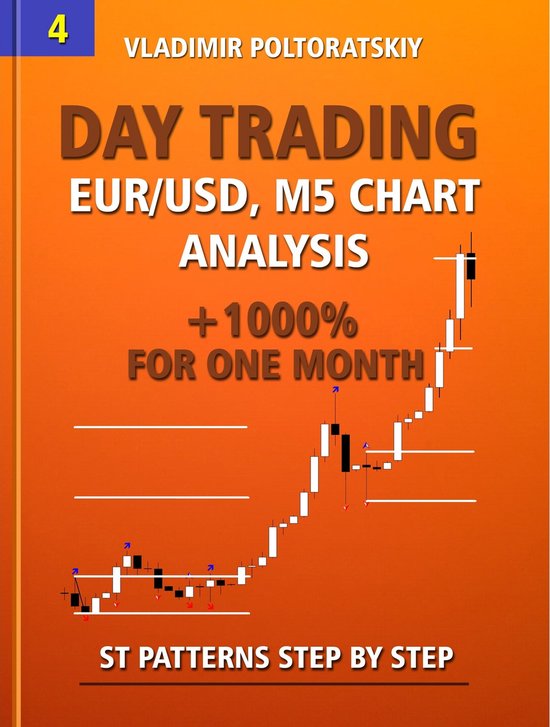
Long-term trading strategies can be a good way to make large profits. To be successful, you will need patience and the ability to keep your position intact for a long time. This strategy has numerous benefits. You can profit from fluctuations in currency. It's not easy to invest in forex. You will need to understand the market and make the best trades, no matter if you're a novice or an expert trader.
You will quickly discover that emotions can interfere with forex trading if you're new to it. If you are experiencing a series of bad trades, you might consider changing your strategy. A demo account can be used to check your skills and determine how profitable you can become. Once you've made some trades, you might notice great gains. However, you should not get discouraged when you have a bad trade. This will not impact your ability to trade in future.
A large account is necessary to be able trade long-term strategies. A large account can help you to stay afloat in times of market declines. A large margin is also a good thing for traders who trade short-term. It is best to not use too many leverage in your forex trades. You should limit your margin to a very small amount. This will help minimize forex market risks.

You will need to analyze the market and make a prediction of the size of the price movement. You will also need to set a stop-loss for every trade. You should also make sure that every trade has a profit target. It is important to remain calm and focused in times of volatility.
A reliable broker is essential if you want to trade long term. To be able to invest in the forex market, you will need a substantial capital. You won't have the ability to keep up with short-term market swings, if you have only a small account.
Long-term forex trading requires an in-depth analysis of the price movement over a longer time period. Changes in monetary policies can also have an impact on it. It is important to understand the direction of the economy. This will help determine your trading strategy. The ideal situation is to only buy when the price exceeds the MA 50 days. This indicates that the forex market is trending up.
In addition, you should not close a trade without a signal. It is also important that the stop-loss be established in accordance with the timeframe. If you close a trade early, you may lose the opportunity to make a profit.

Retail traders are best served by a long-term forex strategy. It is also very popular with big investors. Warren Buffet, for example, bought dips in stock markets during the 2008 financial crisis.
FAQ
What is a mutual funds?
Mutual funds consist of pools of money investing in securities. Mutual funds offer diversification and allow for all types investments to be represented. This helps to reduce risk.
Professional managers are responsible for managing mutual funds. They also make sure that the fund's investments are made correctly. Some funds also allow investors to manage their own portfolios.
Because they are less complicated and more risky, mutual funds are preferred to individual stocks.
Why is a stock called security?
Security is an investment instrument whose worth depends on another company. It may be issued either by a corporation (e.g. stocks), government (e.g. bond), or any other entity (e.g. preferred stock). The issuer can promise to pay dividends or repay creditors any debts owed, and to return capital to investors in the event that the underlying assets lose value.
How are securities traded?
The stock market allows investors to buy shares of companies and receive money. In order to raise capital, companies will issue shares. Investors then purchase them. Investors can then sell these shares back at the company if they feel the company is worth something.
Supply and demand are the main factors that determine the price of stocks on an open market. When there are fewer buyers than sellers, the price goes up; when there are more buyers than sellers, the prices go down.
Stocks can be traded in two ways.
-
Directly from company
-
Through a broker
Can bonds be traded
Yes, they are. Like shares, bonds can be traded on stock exchanges. They have been for many years now.
The difference between them is the fact that you cannot buy a bonds directly from the issuer. A broker must buy them for you.
It is much easier to buy bonds because there are no intermediaries. This means you need to find someone willing and able to buy your bonds.
There are many kinds of bonds. Some bonds pay interest at regular intervals and others do not.
Some pay interest annually, while others pay quarterly. These differences allow bonds to be easily compared.
Bonds are a great way to invest money. If you put PS10,000 into a savings account, you'd earn 0.75% per year. If you invested this same amount in a 10-year government bond, you would receive 12.5% interest per year.
If all of these investments were accumulated into a portfolio then the total return over ten year would be higher with the bond investment.
Statistics
- Our focus on Main Street investors reflects the fact that American households own $38 trillion worth of equities, more than 59 percent of the U.S. equity market either directly or indirectly through mutual funds, retirement accounts, and other investments. (sec.gov)
- Even if you find talent for trading stocks, allocating more than 10% of your portfolio to an individual stock can expose your savings to too much volatility. (nerdwallet.com)
- "If all of your money's in one stock, you could potentially lose 50% of it overnight," Moore says. (nerdwallet.com)
- Ratchet down that 10% if you don't yet have a healthy emergency fund and 10% to 15% of your income funneled into a retirement savings account. (nerdwallet.com)
External Links
How To
How to Invest in Stock Market Online
Stock investing is one way to make money on the stock market. There are many methods to invest in stocks. These include mutual funds or exchange-traded fund (ETFs), hedge money, and others. Your investment strategy will depend on your financial goals, risk tolerance, investment style, knowledge of the market, and overall market knowledge.
Understanding the market is key to success in the stock market. Understanding the market and its potential rewards is essential. Once you've decided what you want out your investment portfolio, you can begin looking at which type would be most effective for you.
There are three main types: fixed income, equity, or alternatives. Equity is ownership shares in companies. Fixed income means debt instruments like bonds and treasury bills. Alternatives include commodities like currencies, real-estate, private equity, venture capital, and commodities. Each option comes with its own pros and con, so you'll have to decide which one works best for you.
Once you figure out what kind of investment you want, there are two broad strategies you can use. The first strategy is "buy and hold," where you purchase some security but you don't have to sell it until you are either retired or dead. Diversification refers to buying multiple securities from different categories. For example, if you bought 10% of Apple, Microsoft, and General Motors, you would diversify into three industries. Multiplying your investments will give you more exposure to many sectors of the economy. You are able to shield yourself from losses in one sector by continuing to own an investment in another.
Risk management is another important factor in choosing an investment. Risk management is a way to manage the volatility in your portfolio. You could choose a low risk fund if you're willing to take on only 1% of the risk. You could, however, choose a higher risk fund if you are willing to take on a 5% chance.
Your money management skills are the last step to becoming a successful investment investor. Planning for the future is key to managing your money. A good plan should cover your short-term goals, medium-term goals, long-term goals, and retirement planning. Sticking to your plan is key! Do not let market fluctuations distract you. Stay true to your plan, and your wealth will grow.